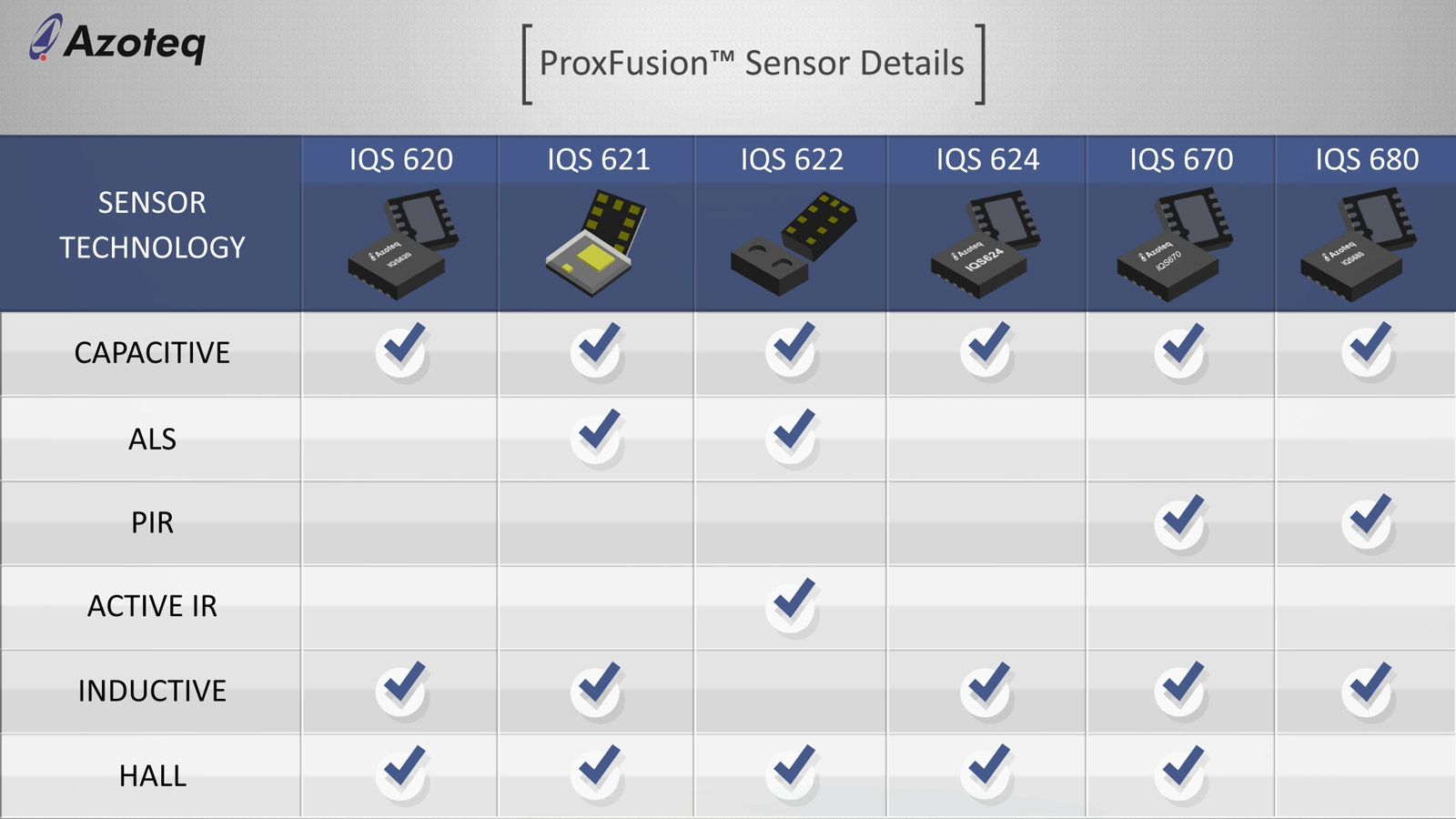Library to read and write Azoteq IQS6xx device registers via I2C.
Dependents: IQS620_HelloWorld IQS622_HelloWorld IQS624_HelloWorld IQS621_HelloWorld ... more
Library: IQS62x
Library to read and write Azoteq IQS6xx device registers via I2C.
Supported Devices
Handy Table of ProxFusion Device Features
ALS = Ambient Light Sensor PIR = Passive Infrared

Diff: IQS62x.cpp
- Revision:
- 14:2514595e2753
- Parent:
- 13:71f8ee16a3a1
- Child:
- 15:6a2f52b5ac46
--- a/IQS62x.cpp Sat May 13 09:26:47 2017 +0000
+++ b/IQS62x.cpp Sat May 13 10:12:37 2017 +0000
@@ -15,14 +15,16 @@
{
registers = I2CBuffer; // pointer to the receive buffer
I2CErrorCount = 0; // reset I2C error count
+ IQSframes = 0; // reset number of reads
i2c.frequency( I2Cspeed ); // I2C clock frequency
// this uses memory but is very handy in diagnostics
- memset(writeFlag, 0, I2CBufferSize); // a table to remmber if we wrote to a register
- memset(lastWrite, 0, I2CBufferSize); // a table to remember what we wrote to a register
- memset(lastRead, 0, I2CBufferSize); // a table to remmber what we read the previous read cycle
- memset(readChanges, 0, I2CBufferSize); // a table to mark up any registers that changed since the previous read
- memset(writeChanges, 0, I2CBufferSize); // a table to mark up any registers that differs from what was written to it
+ memset(writeFlag, 0, I2CBufferSize); // a table to remmber if we wrote to a register
+ memset(lastWrite, 0, I2CBufferSize); // a table to remember what we wrote to a register
+ memset(lastRead, 0, I2CBufferSize); // a table to remmber what we read the previous read cycle
+ memset(readChanges, 0, I2CBufferSize); // a table to mark up any registers that changed since the previous read
+ memset(readChangesEver, 0, I2CBufferSize); // a table to mark up any registers that changed BUT never forget
+ memset(writeChanges, 0, I2CBufferSize); // a table to mark up any registers that differs from what was written to it
}
// write a single byte to an IQS62x register
@@ -53,6 +55,7 @@
void IQS62xIO::readIqsRegisters(int start, int count)
{
memset(I2CBuffer,0x55,I2CBufferSize); // "clear" i2c receive buffer
+ IQSframes++; // count frames
waitForIqsReady();
char i2c_start_address [1];
i2c_start_address[0] = start & 0xff;
@@ -72,14 +75,16 @@
// we build two tables:
// writeChanges[i] is set to 1 if the register content differs from what we wrote to it
// readChanges[i] is set to 1 if the register value differs from the previously read value
+ if (IQSframes < 20) memset(readChangesEver,0,I2CBufferSize); // clear this until we have had 20 full reads
for(int i=0; i<I2CBufferSize; i++) {
if (writeFlag[i] == 1) { // only if we previously wrote to this register we check it
if( I2CBuffer[i] != lastWrite[i] )
writeChanges[i]=1; // if register different from what we wrote, mark it
}
- if ( I2CBuffer[i] != lastRead[i] )
+ if ( I2CBuffer[i] != lastRead[i] ) {
readChanges[i]=20; // if register differs from previous read, highlight it for 20 read cycles
- else {
+ if (readChangesEver[i] < 127) readChangesEver[i]++; // count changes up to 127 and never forget
+ } else {
if (readChanges[i] > 0) readChanges[i]--; // bring it closer to zero
}
}
 IQS624
IQS624
 IQS620A
IQS620A
 IQS620A-EVAL-1
IQS620A-EVAL-1
 IQS621
IQS621
 IQS621-EVAL-1
IQS621-EVAL-1
 IQS622
IQS622
 IQS622-EVAL-1
IQS622-EVAL-1
 IQS624-EVAL-1
IQS624-EVAL-1